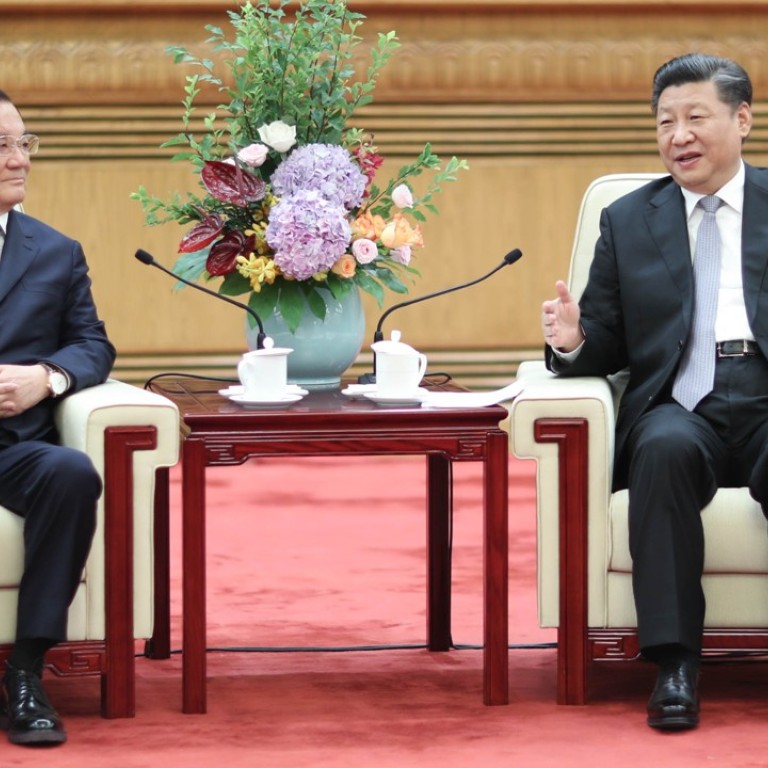
Xi Jinping’s rhetoric on Taiwan may have been gentler, but his bag of carrots and sticks remains the same
Michal Thim says President Xi’s softer tone on Taiwan during his meeting with a senior Taiwanese politician does not indicate a change in Beijing’s stance
An essential element in understanding the change in Xi’s rhetoric is focusing on just who his guest was. Lien is a senior KMT politician, a person with significant influence on the party leadership and a staunch supporter of Taiwan’s unification with China. He also belongs to the last generation of Taiwanese politicians who were born in China.
On the issue of unification, Xi and Lien are of one mind. It is easy for Xi to speak softly when sitting next to Lien, who will state that there is no space for Taiwan’s independence, so Xi does not have to.
No matter what the KMT charter says, or what Lien states in front of the Chinese president, the mainstream KMT is a status-quo party, and leaning towards the status quo is the only way for the KMT to stay competitive in elections.
Electoral considerations are a critical factor. In November, Taiwan will hold its so-called nine-in-one elections, which will affect all levels of governance below the national level.
The DPP will surely hold its traditional base in the south. It will also most likely continue to hold Taoyuan and Taichung that had long been under the KMT control until the DPP took over in 2014. Whatever the causes of dissatisfaction with the Tsai government, they are not deep enough to translate into a significant rise in support for the KMT.

Xi’s softer tone was intended to send a message to the domestic audience. Beijing understands it is important to demonstrate goodwill now and then
However, the general conditions of cross-strait relations are so different that neither Xi nor Lien (and the KMT) can realistically expect that the same trick would work again.
In 2005, the KMT’s contacts with the Communist Party promoted the KMT as a party that could keep relations across the Taiwan Strait constructive and mutually beneficial. It contributed to the KMT’s electoral success in 2008.
There is no doubt that Beijing would like to see the KMT prevail later this year, and more importantly in 2020. However, talking to Lien and inflexibility on the “One China” framework are not going to go down well with Taiwanese voters.
Xi’s seemingly softer tone was intended to send a message to the domestic audience. Leaders in Beijing understand that it is important to demonstrate goodwill now and then.
The audience, in this case, is not really the Taiwanese public, but the population in China, and the purpose is to show Chinese citizens that Beijing tried hard to convince the Taiwanese to unify with China on peaceful terms, but that eventually all goodwill will be exhausted and the use of force is the only option.
That said, none of the above means that the softer tone is necessarily disingenuous. Both political and military leaders in China understand the pitfalls of using force against Taiwan in any form: a naval blockade would be lengthy, would offer the US and other allies more time to react and would not generate the immediate momentum Beijing needs.
Xi did not significantly alter his rhetoric; he merely used tools that he and his predecessors employed before with varying degrees of success. Talking to a like-minded counterpart like Lien is not challenging and does not necessitate harsh rhetoric.
Announcing a change in China’s attitude towards Taiwan would be more convincing when, or rather if, Xi meets high-ranked DPP officials and still maintains a conciliatory posture. We are not quite there yet.
Michal Thim is a Taiwan analyst at the Association for International Affairs (Czech Republic) and a fellow of the Metropolitan Society for International Affairs (US)

